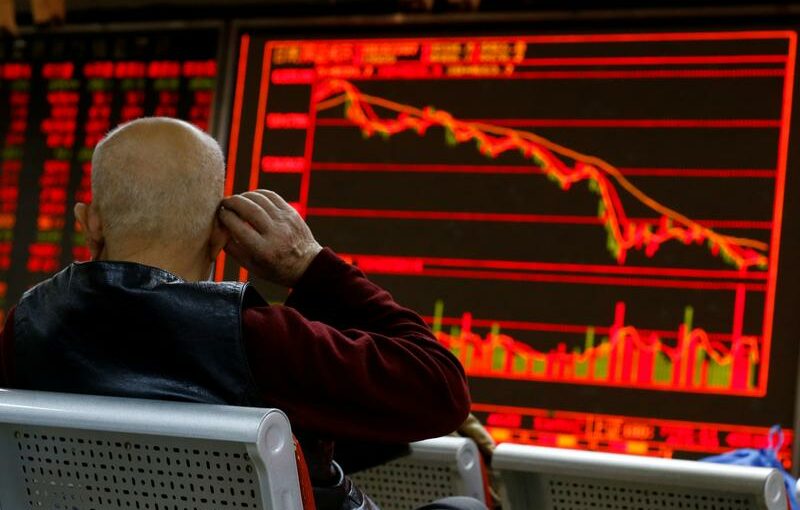SHANGHAI (Reuters) – Asian shares rose on Friday and a gauge of global equities edged closer to record highs after U.S. President Joe Biden embraced a bipartisan Senate infrastructure deal, raising hopes for an extended rebound in the world’s largest economy.
Investors have been looking to an infrastructure agreement to extend the U.S. recovery after massive fiscal stimulus helped the U.S. economy grow at a 6.4% annualized rate in the first quarter. The plan is valued at $1.2 trillion over eight years, $579 billion of which is new spending.
Futures pointed to a higher open for share markets in Europe. Pan-region Euro Stoxx 50 futures added 0.18, DAX futures rose 0.16% and France’s CAC 40 futures were up 0.17%. FTSE futures edged 0.03% higher.
“The positive market tone recognizes the potential growth benefits of the compromise, but with the smaller size tempering some of the tax implications to pay for it,” said Kerry Craig, global market strategist at J.P. Morgan Asset Management.
Securing bipartisan agreement on the deal required Biden to sacrifice some of his original ambitions on schools, climate change mitigation, and support for parents and caregivers, as well as tax increases on the rich and corporations.
“We continue to expect progress on further fiscal stimulus in the months to come and the larger size of those packages will likely necessitate rising taxes, especially if they come via the U.S. Congressional budget reconciliation process rather than partisan support,” said Craig.
MSCI’s broadest index of Asia-Pacific shares outside Japan rose nearly 1%, as Chinese blue chips rallied 1.84%. MSCI’s all-country index rose 0.21%, putting it less than 0.3% below a record high touched on June 15.
Hong Kong’s Hang Seng added 1.38%, Seoul’s Kospi was up 0.44% and Australian shares climbed 0.45%. Japan’s Nikkei rose 0.66%.
Asian stocks rebounded after falling earlier in the week amid concerns of earlier-than-expected policy tightening by the U.S. Federal Reserve, after it signalled higher rates in 2023 last week.
“The reality remains that the timing of any tapering scare, or indeed tapering, is most likely to be driven by market-driven inflation expectations. And the pressure on this front has eased of late,” Christopher Wood, global head of equity strategy at Jefferies, said in a note.
Overnight, the S&P 500 gained 0.58% and the Nasdaq Composite added 0.69%, lifting both indexes to record high closes. The Dow Jones Industrial Average rose 0.95%.
In the currency market, the dollar index was down about 0.1% at 91.764 as investors continued to weigh the likelihood of Fed tightening in the face of persistent inflation.
The Japanese yen edged higher to 110.84 and the euro gained 0.07% to $1.1938.
Benchmark 10-year U.S. Treasuries, which saw yields dip after Biden’s announcement of an infrastructure bill were last at 1.4952%, up from a close of 1.487% on Thursday.
Yields on the 30-year bond were barely higher at 2.098% from 2.095% on Thursday.
Oil prices ticked up to near three-year highs, supported by drawdowns in U.S. inventories and accelerating German economic activity. U.S. West Texas Intermediate crude rose 0.14% to $73.40 per barrel and global benchmark Brent crude was at $75.65, up 0.12% on the day.
Spot gold was up 0.11% at $1,777.09 an ounce, on track for its first weekly rise in four.
Source: Read Full Article
